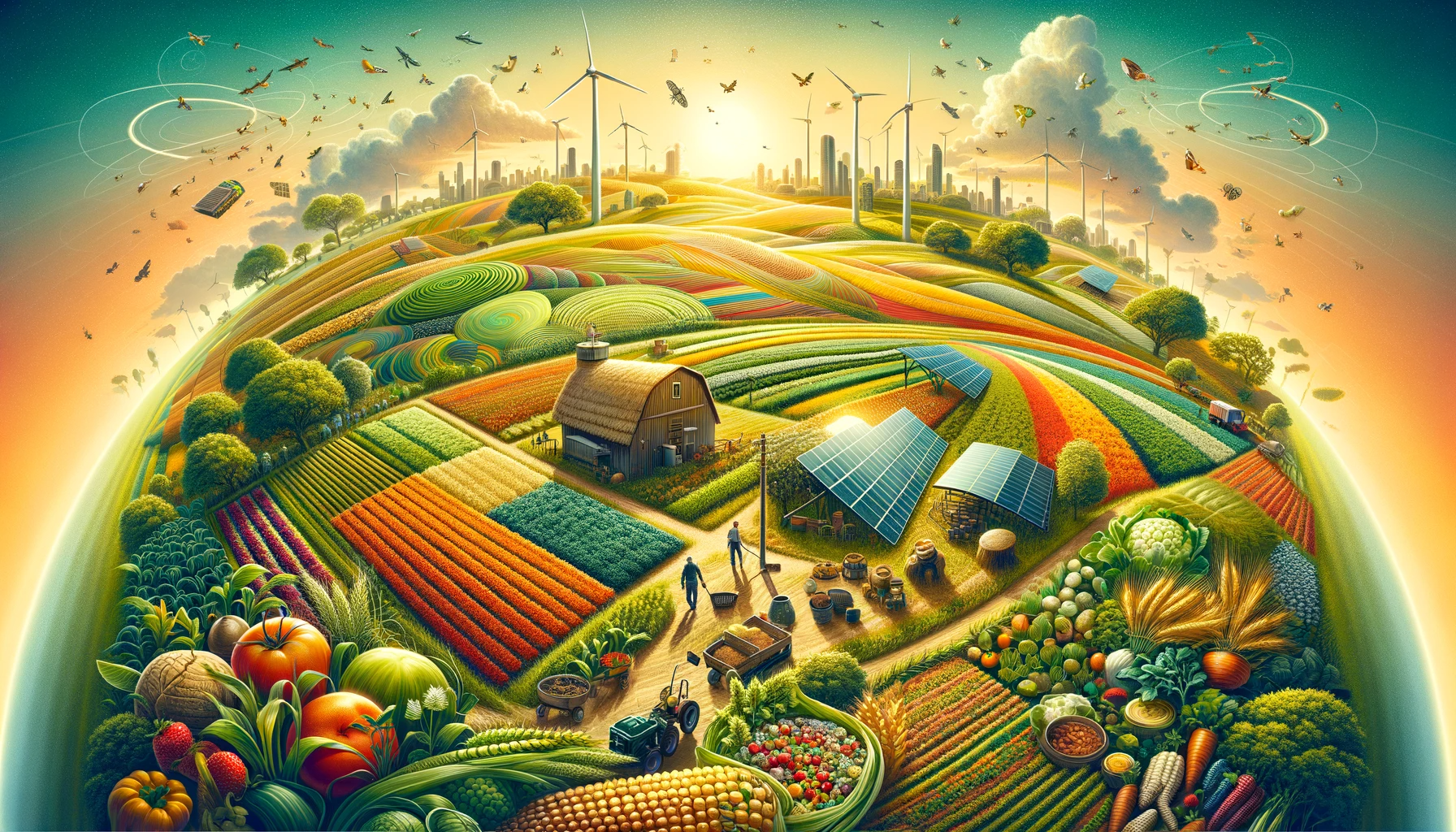As the global population surges, ensuring food security without compromising our environment is pivotal. Sustainable agriculture, which harmonizes human food needs with ecological balance, provides a promising approach. This article delves into the principles and practices of sustainable farming.
1. Principles of Sustainable Agriculture Sustainable agriculture rests on three core pillars: economic profitability, environmental stewardship, and social responsibility1. By balancing these aspects, agriculture can meet today’s food demands without jeopardizing future generations.
2. Soil Health Management Healthy soil is foundational for sustainable agriculture. Practices like crop rotation, cover cropping, and reduced tillage preserve soil fertility and prevent erosion, ensuring long-term productivity2.
3. Integrated Pest Management (IPM) IPM emphasizes eco-friendly pest control strategies. By using biological controls, beneficial insects, and pheromone traps, IPM reduces the dependency on harmful chemical pesticides3.
4. Efficient Water Use Sustainable farming harnesses techniques like drip irrigation, rainwater harvesting, and mulching to maximize water efficiency and minimize wastage4.
5. Agroforestry and Polyculture Merging tree planting with farming (agroforestry) and cultivating multiple crops together (polyculture) enhance biodiversity, reduce pests, and optimize land use5.
6. Grass-fed and Pasture-raised Livestock Allowing animals to graze naturally reduces the need for feed crops, mitigates methane emissions, and enhances meat quality6.
7. Reducing Food Waste Approximately one-third of global food production is wasted or lost7. Sustainable agriculture includes efficient harvesting, storage, and distribution methods to counteract this loss.
8. Support for Small-scale Farmers Small-scale farmers, often employing sustainable practices, play a crucial role in global food production. Ensuring they receive fair prices and access to markets is fundamental for a sustainable food system8.
9. Agricultural Education and Research Investing in research on sustainable farming techniques and educating farmers about them accelerates the adoption of sustainable practices9.
Conclusion Sustainable agriculture offers a holistic approach to food production, intertwining economic viability, environmental health, and social equity. Embracing these methods can ensure that we feed the world today without starving our future.
References:
- National Sustainable Agriculture Coalition (NSAC). (2017). Sustainable Agriculture: Definitions and Terms.
- Soil Science Society of America (SSSA). (2019). Soil Health: Key to Sustainable Agriculture.
- University of California, Agriculture and Natural Resources. (2020). What is Integrated Pest Management (IPM)?.
- Food and Agriculture Organization (FAO). (2017). More Crop per Drop: Ensuring Efficient Water Use in Agriculture.
- Jose, S. (2009). Agroforestry for Ecosystem Services and Environmental Benefits: An Overview. Agroforestry Systems.
- Gerber, P. J., Steinfeld, H., Henderson, B., Mottet, A., Opio, C., Dijkman, J., … & Tempio, G. (2013). Tackling climate change through livestock. FAO.
- FAO. (2011). Global Food Losses and Food Waste.
- IFAD. (2019). The Importance of Smallholder Farmers.
- Thrupp, L. A. (2000). Linking agricultural biodiversity and food security: the valuable role of sustainable agriculture. International Affairs.


